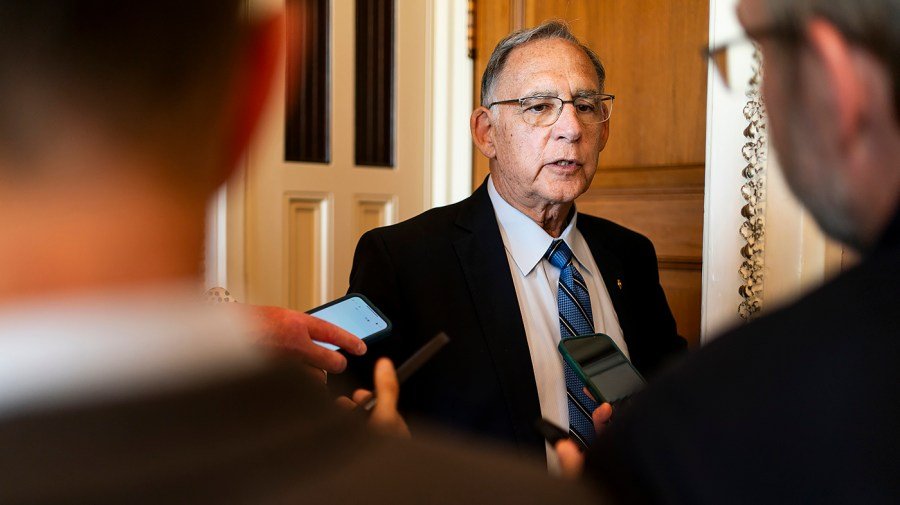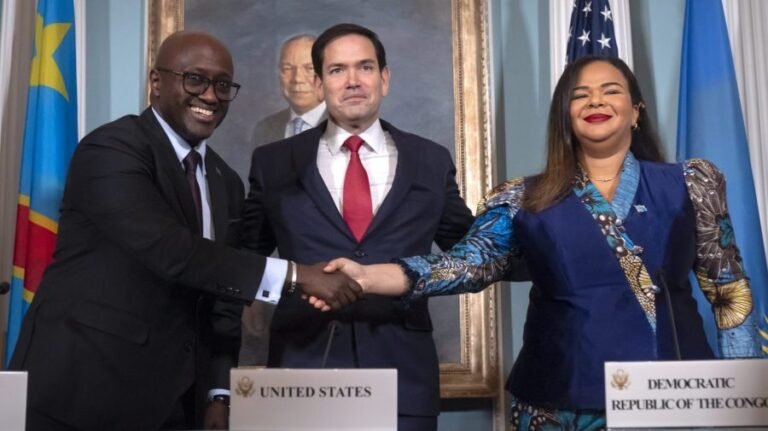
A Republican effort to require states to cover a share of food benefits under the Supplemental Nutrition Assistance Program (SNAP) for the first time can now move forward after a recent decision from the Senate’s parliamentarian.
Senate Parliamentarian Elizabeth MacDonough ruled a revised proposal from the Senate complied with the chamber’s Byrd Rule, days after she rejected the GOP’s previous “state cost-share” proposal.
As part of a sweeping plan to advance President Trump’s tax agenda and reduce some federal spending, Republicans sought to require states to cover some of the cost of SNAP benefits — which are currently completely funded by the federal government — if they have a payment error rate above 6 percent beginning in fiscal 2028. The proposal in the megabill would also allow states with rates below that level to continue paying zero percent.
Under the updated proposal approved by the parliamentarian, Republicans say states would be allowed to “choose either the Fiscal Year 2025 or Fiscal Year 2026 payment error rate to calculate their state match requirement that begins in Fiscal Year 2028.”
“For Fiscal Year 2029 and following, the state match will be calculated using the payment error rate from three fiscal years prior,” the lawmakers added in a statement from the GOP-led Senate Agriculture, Nutrition and Forestry Committee. “A state must contribute a set percentage of the cost of its SNAP benefits if its payment error rate exceeds six percent.”
Republicans also noted the proposal will help incentivize states to get their payment error rates down.
“This paves the way for important reforms that improve efficiency and management of SNAP while encouraging responsible use of taxpayer dollars,” Senate Agriculture Committee Chair John Boozman (R-Ark.) said in a statement.
“In 2023 alone, over $10 billion was misspent when administering this program – underscoring the need for stronger accountability,” Boozman continued. “Our commonsense approach encourages states to adopt better practices, reduce error rates, be better stewards of taxpayer dollars, and prioritize the resources for those who truly need it.”
In discussing the revised plan earlier this week, the Arkansas senator argued the updated proposal “just gives the states more information to work with.”
“But as far as affecting the program or how the program works, it’s the same,” he told The Hill. “Again, it just gives them a little bit more flexibility and a little bit more information.”
“The savings are almost identical,” Boozman added.
However, Democrats have leveled sharp criticism against the effort, which some argue could lead to states cutting benefits on their own by shifting billions of dollars in costs to states.
“Congressional Republicans have chosen to cut food assistance for millions of Americans to give tax breaks to billionaires,” Sen. Amy Klobuchar (Minn.), the top Democrat on the Agriculture Committee, said in a statement Friday.
“Instead of working with Democrats to lower costs for Americans, Congressional Republicans are doubling-down on shifting costs to states that they simply cannot bear,” she added. “We’ll keep fighting these proposals that raise grocery costs and take food away from millions of people, including seniors, children, and veterans.”


